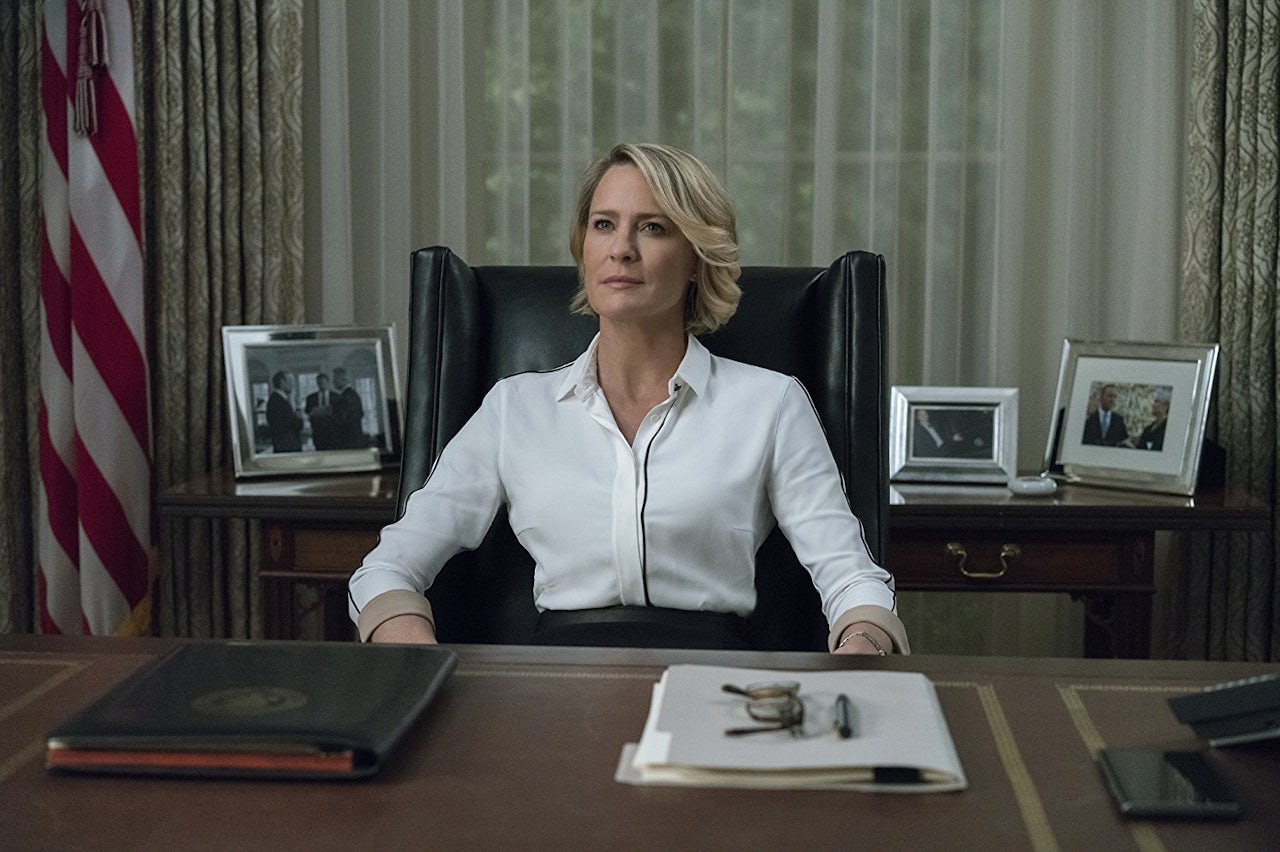The actress Robin Wright appeared on the Today Show Monday morning to discuss the firing of Kevin Spacey from House of Cards, a show on which she is now the protagonist after five seasons in a supporting role, which returns later this year. Spacey, who portrayed the fictional president Frank Underwood on the show, was dismissed last year following a slew of allegations, including that he sexually harassed and assaulted several crew members. Though production on the sixth and final season was temporarily ceased, it was eventually announced it would go on, with a twist: The show would write off Frank, and shift focus to his wife Claire (played by Wright), who became president in the previous season’s conclusion.
The interview was clearly meant to enable a measure of redemption for the show. In Wright’s telling, the cast “forged ahead and were so thankful to complete the series, as planned,” a dubious claim considering it’s unlikely the original plan was to cut out the protagonist entirely. Wright also evinced an ignorance of Spacey’s behavior, denied comment on whether Netflix was right to fire Spacey, and said that she and her disgraced co-star “knew each other between action and cut … I didn’t know the man. I knew the incredible craftsman that he is.”
The interview exposed several absurdities about the show’s decision to keep going. What show was there to complete, really? House of Cards is — or was, at least — a perfectly okay program. The brooding lighting and grim-jawed performances appropriated the mood of prestige television long enough to win some awards early on, though successive installments won token nominations; the latest season premiered to notably depreciated critical acclaim. Nonetheless, the show was fun the way The West Wing and Scandal were fun, by injecting dramatically absurd twists into recognizable political scenarios. It was dumb by the barometer of serious fiction, but fun to binge watch — especially as Netflix’s first original offering, and as the first show to ever be released at all once. There was no grand, in-demand narrative to conclude, not without the main character.
Like Transparent, which shed its star, Jeffrey Tambor, following similar allegations, it was unclear how rewriting House of Cards to remove Frank’s presence would really work. Wright said on Today that the show needed to be completed in order to keep the cast and crew employed — a noble endeavor, sure, but a less meaningful gesture than if Netflix had simply paid out everyone’s salaries for the final season, what with their growing profits.
That would be an unprecedented move, but everything about the current climate is unprecedented. To carry on with the lie that the production of the show can be business as usual ignores the necessity of the paradigm shift to which Wright weakly alluded. There are better redemptive measures than producing an unnecessary season of an unnecessary show and pushing its stars to limply dance around the truth: Spacey was House of Cards, and his actions should force a deep self-examination about everyone’s role in allowing his behavior to go years without being checked.
